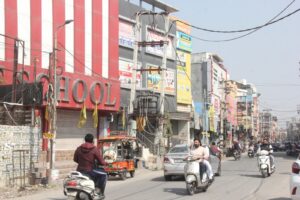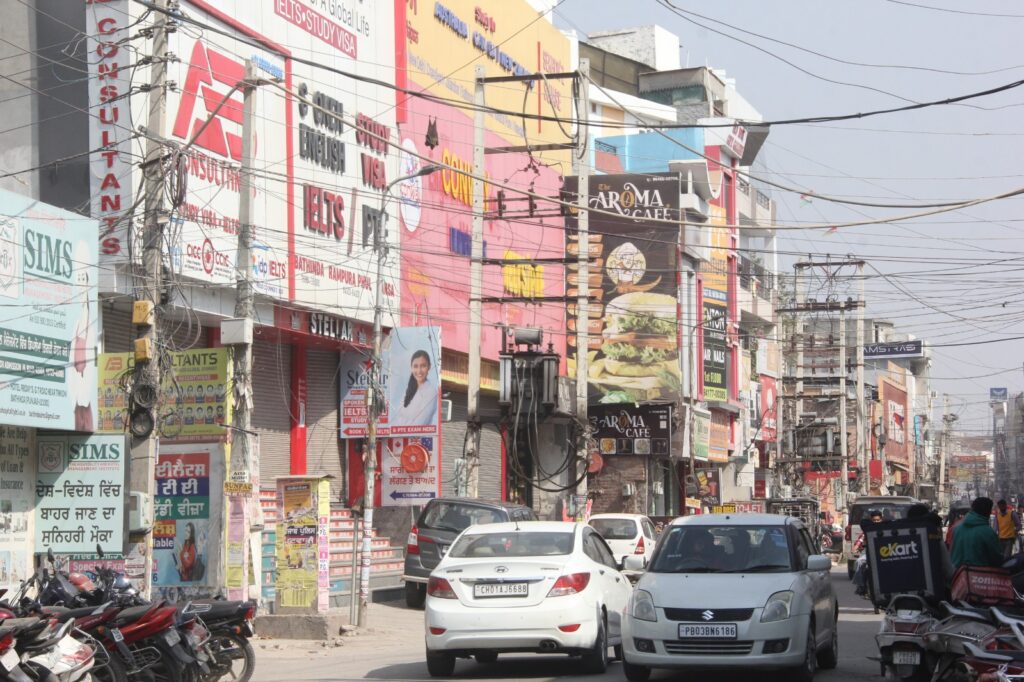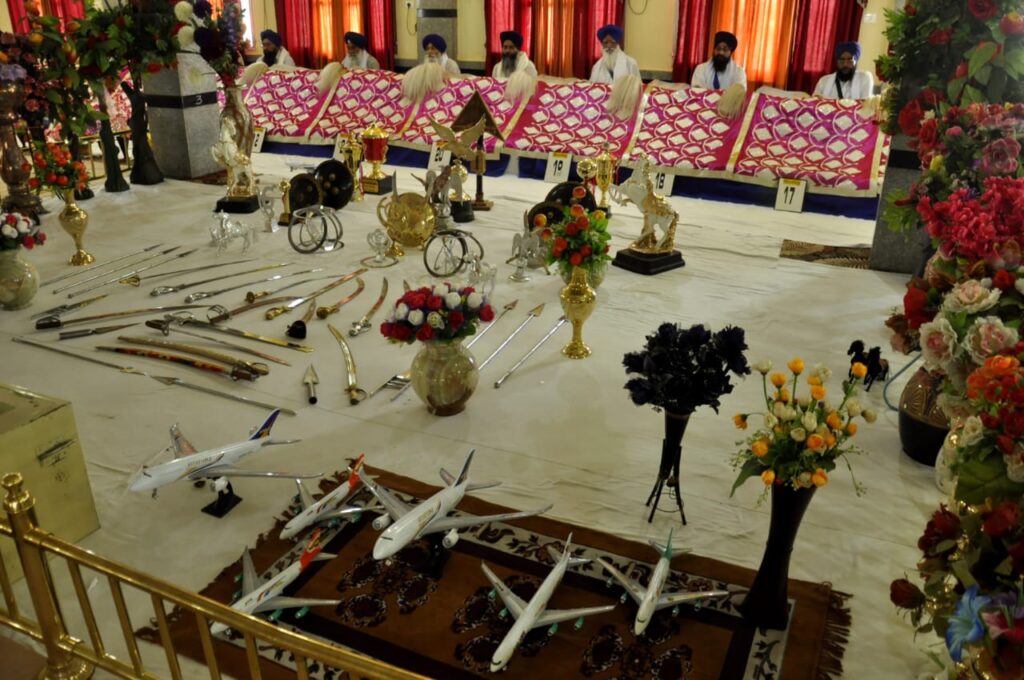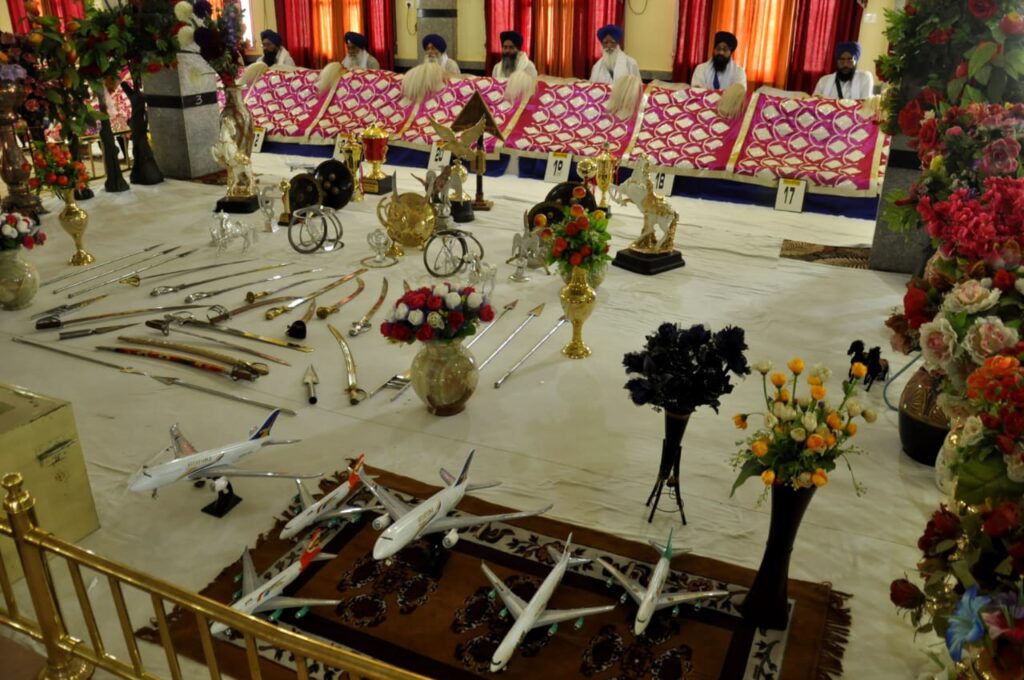Simarpreet Kaur (name changed) who recently turned 18 and her family watched in disbelief as Canada’s Minister of Immigration, Refugees, and Citizenship, Marc Miller, rolled out new immigration rules. The amended rules are said to have adversely affected Punjabi students who were eagerly seeking opportunities in the maple country. Not only was a cap placed on student intake, but the terms and conditions for spouse visas for undergraduate and diploma courses of international students have also been tweaked.
Simarpreet and her family had already entered into a ‘transactional’ marriage wherein after clearing the IELTS with a 7.5 band, she was to marry a youth from Barnala and take him along to Ontario, Canada, on a spouse visa. Observers say that Simarpreet’s marriage was among hundreds of such ‘English-exam marriages’ that are solemnized aiming for easy immigration for spouses who are academically weak or could not clear the IELTS exam with desired marks.
Now with the change of immigration rules, spouses of students enrolled in diploma and graduate level degree courses shall not be granted an ‘open work permit’. This has turned turtle the plans of those who were using this loophole to immigrate to Canada driveplans the ‘Dollar dreams’.


“Marriages at such tender ages was perhaps the main reason behind high divorce rate of Punjabis. At the same time, easy way of obtaining student visa, followed by work permit and further getting permanent residence, was harmful for our youth,” says immigration agent Gurpreet Singh from Sangrur.
Why the eagerness to fly to Canada?
While the earliest Punjabi immigration to Canada can be traced in the 1890s, it was not until the year 1991 that Canada started registering a steep hike in number of Punjabis migrating to the country. As per 2021 census data of Canada, there are around 7.70 lakh Sikhs, which make almost 2.20 percent of the total population.
 The recent study conducted by team of professors from Punjab Agricultural University (PAU) on Overseas Migration from Rural Punjab: Trends, Causes, and Consequences states reasons behind people making an exodus from India. Prof Shalini Sharma said that the main reasons for exodus pointed out by people in the survey included low income, lack of employment opportunities (72%), corruption and systemic problems (62%), drug prevalence (52%), social insecurity (50%), small land holdings (35%), landlessness (28%), and debt (24%).
The recent study conducted by team of professors from Punjab Agricultural University (PAU) on Overseas Migration from Rural Punjab: Trends, Causes, and Consequences states reasons behind people making an exodus from India. Prof Shalini Sharma said that the main reasons for exodus pointed out by people in the survey included low income, lack of employment opportunities (72%), corruption and systemic problems (62%), drug prevalence (52%), social insecurity (50%), small land holdings (35%), landlessness (28%), and debt (24%).

However, Manpreet Singh, an immigration consultant from Bathinda city points out that youngsters from well-to-do-families are immigrating majorly as a status symbol and under peer pressure. “Young boys seeking immigration at age of 18 years come to us under peer pressure, as their friends have gone to Canada. In terms of girls, the scene changes when she is riddled with a transactional marriage to assist a boy move to Canada in garb of a spouse visa,” he said.
Tricked by the agents, fake colleges in Canada
Seeking greener pastures abroad, the students easily fell prey to immigration agents who sent them to Canada by hook or crook in lieu of hefty money. However, on reaching Canada these students were left in hanging as they had been duped by being sent to fake or sub standard universities or colleges. The recent most case is that of 700 students who were tricked by a Jalandhar based agent. He gave students fake offer letters, which the concerned universities/ colleges had never issued. Similarly, educational counsellors from sub standard universities of Canada have been known to be preying upon potential ‘candidates’ in Punjab and luring them with false promises.

Why Canada introduced changes in immigration rules?
In 2023, Canada had issued 1 million study permits, tripling the number from a decade ago. Most of the students immigrating from Punjab opted for colleges in Toronto, Mississauga, Brampton and North Bay cities of Ontario province over the years. This had led to serious issues with reduced employment opportunities, lesser wages (than fixed by the Government of Canada on per hour basis), housing crisis for students etc. The housing crisis grew so acute that news of Punjabi students sleeping in tents, under the bridges, going on strike against Canadian government had become common in media. Following this Marc Miller capped number of student visas from India to 364,000 visas for year 2024 and also introduced other major changes to curb number of immigrating students (see box).
How will the changes in immigration rules impact students?
- International Student Intake:
- Major change: Capping the number of international student intake from India at 3,60,000.
- Previous intake: Nearly 1 million in 2023.
- Guaranteed Investment Certificate (GIC):
- Increase in cost of living.
- GIC doubled: Raised from 10,200 Canadian Dollars to 20,635.
- Implication: The GIC now makes the student experience twice as expensive.
- Post Study Work (PSW) Permit:
- Old rules: Available after 2 years of diploma or 3 years of degree from government or PPP colleges.
- New rules: PSW granted after mandatory 3 years degree course from government colleges only.
- Exception: No PSW for students in PPP colleges.
- Spouse Immigration and Work Permits:
- Old rules: Spouses of diploma and undergraduate students eligible for immigration with open work permits.
- New rules: Only spouses of international students in master’s, doctoral, and professional programs eligible for open work permits.
- College Seat Allocation:
- Previous system: Students could apply to colleges in any province of Canada.
- New system: Government allocates seats to each province based on international student population, housing arrangements, and provinces distribute seats to colleges and universities.
Exception: Not applicable to students pursuing masters or doctoral degrees in Canada.
MAJOR CHANGES IN CANADIAN IMMIGRATION RULE
| Rule | Old | New |
| Cap in number of student intake | In year 2023, as per Canadian immigration authorities around 1 million students were granted permits | Now in 2024 only 360000 students from India will be taken |
| GIC Guaranteed Investment Certificate | 10200 Canadian Dollars | 20635
Canadian Dollars |
| Post Study Work (PSW) Permit | Students got PSW after 2 years diploma
OR After 3 years degree course from govt or PPP colleges PPP: Public Private Partnership Colleges |
Students will now get PSW after mandatory 3 years degree course from government colleges. PPP students will not get work permit |
| Spouse Visa | Earlier, spouses of diploma and under graduate students were eligible to immigrate and can have open work permits | Only spouses of international students enrolled in master’s, doctoral and professional programs will be eligible for open work permits. |
| Selecting province | Earlier student could apply for college in any province of Canada | Now Canadian government will allocate college seats to each province based on existing population of international students, housing arrangements in that area and further the provinces will distribute seats to colleges and universities. This is not applicable on students pursuing masters or doctoral degrees in Canada. |
These rules shall be applicable on the immigrant students from Sep 1, 2024 onwards and the repercussions shall be seen in quantitative form by Jan 2025 intake.
Edited by Raghujit Randhawa

